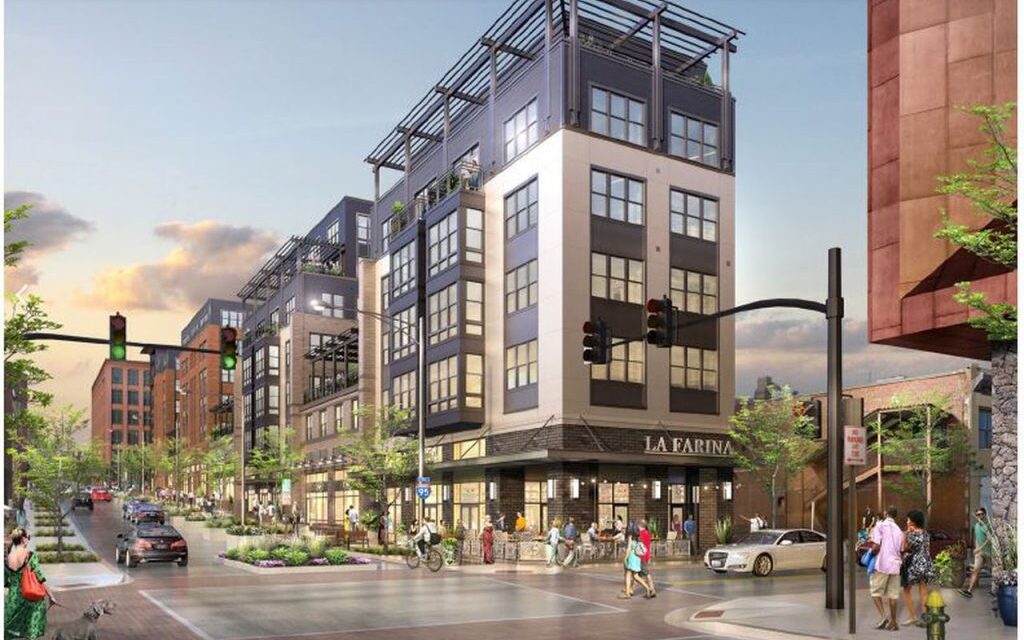By Lee Roop
The Huntsville City Council voted Thursday to begin designing and building new streets for one of the biggest developments ahead for its booming downtown on the site of an old Coca-Cola bottling factory.
The council approved a $239,000 engineering contract with local site architects Matheny Goldmon Architecture + Interiors for “streetscaping and a street plan.” That is far less than the $18 million the city will ultimately invest in the site and a fraction of the $500 million private developer Rocket Development Partners LLC of New York will spend there.
The bottling company site on Clinton Avenue is across from the Von Braun Center’s North Hall, the main ballroom/banquet room officials said the VBC also plans to expand during the development. The commercial development will start this year, city officials expect.
The site plan includes a new parking garage to serve the civic center and the development, 400 multifamily lofts, offices, retail space, food and beverage vendors and a new 200-room convention hotel, city Urban and Economic Development Director Shane Davis said. Tax revenue from the hotel, restaurants, shops and bars will repay the city’s investment.
The design calls for a new north-south road connecting Clinton Avenue and Holmes Avenue and a new east-west road starting at the east bank of Pinhook Creek and extending west to the property’s end. It also calls for a biking and pedestrian path along the creek.
Davis said he expects the city’s park of street and sidewalk work may not begin until 2023 because the street plan is “intricate” with sidewalks, lamps and trees. “That needs to come once a building is up and the exterior finished so it’s not destroyed,” he said.
The 13-acre site covers two blocks bordered by three public streets and is the largest undeveloped property remaining in the central city. The city of Huntsville expects to recoup its $14 million site investment within four years. The project is projected to generate about $43 million in taxes over 10 years.











